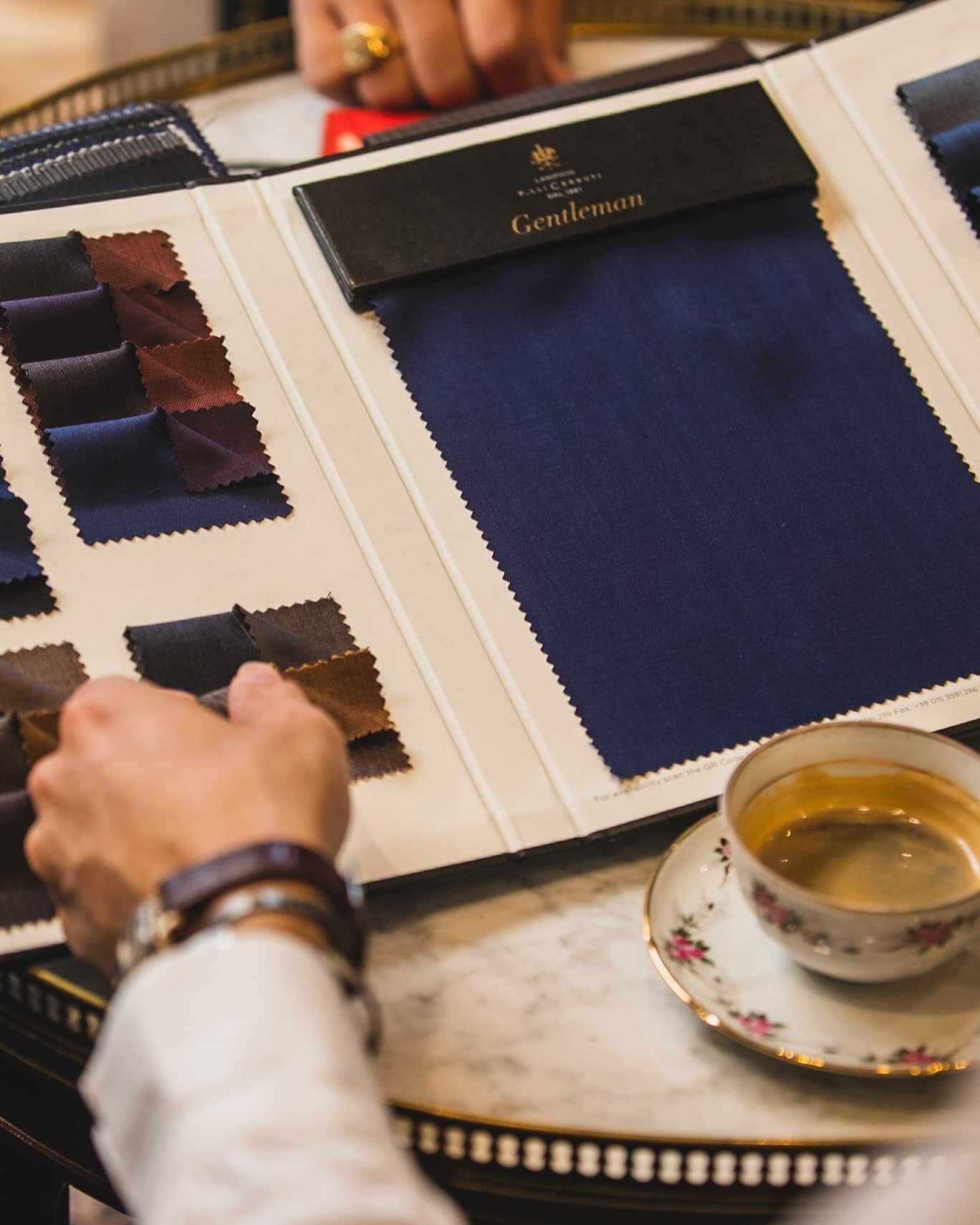
Quality partners
After our Top 5 Italian drapers, in which you were able to appreciate the fruits of the Biella region’s labor when it comes to fabrics. It has to be said that the English are not to be outdone. There’s also the Yorkshire region, with its equally pure water that has earned the region a name every bit as prestigious as its Roman rival. The Yorkshire region is home to several renowned spinning mills. Here are the main pillars that have made the reputation of English gentlemen for over two centuries.
DORMEUIL
In the 19th century, there was no such thing as ready-to-wear clothes or style trends. To dress themselves, most men had suits made (except for a few trades requiring more technical clothing). They bought from tailors, one of whom was Jules Dormeuil (who started his business by importing elegant English fabrics to France). His business flourished, so much so that his two brothers soon joined him to help out. The House was given a coat of arms with three sheep’s heads (the Dormeuil family’s sense of simplicity and consistency).
By the end of the 19th century, the company was already exporting its products around the world (notably to Asia and the United States). In fact, it was one of the first French exporters to establish a presence in Japan, as early as 1913. The company’s reputation is based first and foremost on the flawless quality of its raw materials. A crucial resource, which Maison Dormeuil makes a point of sourcing from the four corners of the globe (India, Tibet, Iran, Mongolia, Bolivia, Peru, Patagonia, Alaska). Today, the family-run company sources its materials from some fifteen different countries.
HOLLAND & SHERRY
This English company belongs to the select circle of weavers and drapers who made the reputation of the tailors of Paris and Savile Row. Leaving to others the specialty of more precious fabrics such as cashmere and vicuña (we’re thinking of Loro Piana, of course). It has always specialized in all the finest wools and, of course, superb tweeds (they’re English, of course!).
Stephen George Holland and Frederick Sherry met in London. They decided to combine their expertise as wool merchants to create the company that would bear their respective names in 1836. At the time, England was the world’s leading textile manufacturer, and therefore the one to set market trends. It is also necessary to specify that the Yorkshire benefit from a typical climate humide (l’ouest de l’Angleterre) but also de course d’eau très pures (une nécessité absolue pour un filage de qualité). For centuries now, the reputation for excellence enjoyed by the region’s mills has been as much due to these natural conditions as to the quality of their fabrics.
Holland & Sherry is undoubtedly one of the pillars of the drapery world. It is a highly specialized reference in the world of luxury. Its fabrics are a guarantee of quality and longevity. They exude the British elegance that conquered and dominated the world until the 20th century. If you’re looking for a tweed suit, they’re the market reference.
SCABAL
Scabal is a famous English draper who has been in business since 1938. It is internationally renowned for the quality of its fabrics. Firmly rooted in Savile Row, it supplies all tailors worthy of the name. Professionals who appreciate his wide range of wool, silk, mohair cashmere, vicuna and linen fabrics. His mill is located in Huddersfield, a factory that has been working with fabric since the 15th century.
It has to be said that the entire Yorkshire region possesses outstanding spinning expertise. And with good reason: the region’s particularly soft water gives fabrics a feel that is unique in the world. It and the Biella region are among the best in the world.
Scabal also supplies many haute couture houses. That said, by the early 70s, the brand could feel the tide turning. Indeed, with increasing globalization, ready-to-wear was taking on ever greater proportions in the market.
The problem was that there was a huge gap (in terms of price) on the market between made-to-measure and mass-produced suits.
Worried (and rightly so, since they were no longer at all competitive), tailors seriously fear for their future, as they simply can’t face up to this new trend of intensive industrial low-cost production threatening the suit market. This is understandable, given that the market is in radical contrast to the tailors’ habits and principles.
Scabal took the plunge and decided to create a new service halfway between the two: the genesis of demi-mesure. The idea c


